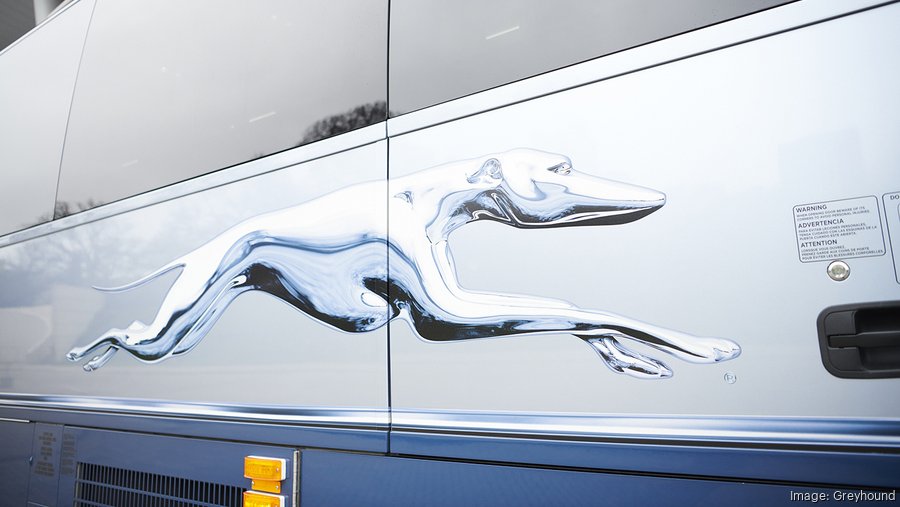Article published in the Philadelphia Business Journal on November 26, 2023.
Intercity bus passengers deserve a great customer experience. This is not what they are getting in Philadelphia from Greyhound Lines, Inc.
Greyhound, the largest of the intercity bus companies, abandoned its bus terminal at 10th and Filbert streets in June to reduce costs. This is consistent with the strategy of Greyhound’s parent company, Twenty Lake Holdings LLC, to relocate bus terminals outside of the central business district of cities.
Greyhound moved to a curbside load/unload passenger model between 6th and 7th streets along the south side of Market Street. The site had a small ticket office, but no waiting room or restroom facilities. No thought was given to the downgraded experience of Greyhound’s passengers or the adverse impact on businesses along Market Street.
After Greyhound’s relocation, the congestion on Market Street was so bad that SEPTA no longer stopped their city buses at 6th and Market, inconveniencing local riders. Businesses complained of blocked access, trash and passengers wanting to use their restrooms. Didn’t Greyhound need a permit from the City of Philadelphia to relocate to Market Street?
A July 6 Philadelphia Inquirer article by Thomas Fitzgerald quotes a passenger as she waited for her bus during a hot summer day: “There’s nothing here. People can’t be standing here for hours like this. It isn’t right. And what are they going to do about winter when there’s snow?”
Madeleine Wright, a CBS Philadelphia reporter posted on X, (formerly known as Twitter): “Dozens of [Greyhound] passengers are waiting on the sidewalk after being told they cannot wait inside the new bus terminal at 7th and Market… Frustrated passengers say there is nowhere to sit or to use the bathroom.”
Greyhound passenger Chrystal Weeks said, “They just have us out here, standing out here all along the line and it is horrible. People paid money. We can’t use the bathroom. We’re hungry. We’re tired and we have been sitting down out here since 3 o’clock, and it’s not just me.”

In the wake of complaints, Greyhound issued a statement that said, “Greyhound , like other intercity bus transportation providers, follows industry standards. The bus stop at 618 Market St. is conveniently located near several restaurants where travelers can purchase food and drinks prior to boarding. … Once on board, the Greyhound bus is equipped with amenities including a restroom and free Wi-Fi and onboard entertainment.”
When industry standards are inadequate, leading companies go beyond those standards to differentiate themselves from their competition. Why doesn’t Greyhound?
I wonder if anyone from Greyhound visited the Market Street site and spoke directly with their passengers as members of the news media did. Instead of acknowledging the complaints of its customers and making improvements, Greyhound issued a tone-deaf statement.
I can only surmise that unlike most leading businesses, Greyhound feels they don’t need to provide a great customer experience. Bus riders are mostly college students and people who can’t afford alternate types of transportation, so they will travel by bus regardless of how inadequate the lack of terminal facilities are.
Greyhound may not care about its image, but the City of Philadelphia cares about theirs. In a Nov. 8 press release, Mike Carroll, Philadelphia’s deputy managing director for the office of transportation, infrastructure, and sustainability, stated, “The volume and nature of complaints leave the situation at 6th and Market streets completely untenable. … For that reason, the city made a firm commitment to relocate the intercity bus operations off of the 600 block of Market Street this fall. Efforts are underway to find an off-street location but require more time, and an interim change in location is needed urgently.” My question to Carroll is: Why did it take so long to address this issue?
The interim site selected by the city is Spring Garden Street and Columbus Blvd. On Nov. 10, the site became a curb side terminal for Greyhound, FlixBus, MegaBus, and Peter Pan to drop off and pick up passengers. The city states that a waiting room, ticketing and restroom facilities will shortly follow. Let’s see how long it will take to locate a site for a permanent intercity bus terminal. This should be at the expense of the bus companies, which they can recover through a ticket surcharge.
The issues that arose with Greyhound’s move to a curbside load/unload passenger model on Market Street should have been anticipated. What occurred has hurt Philadelphia’s image and that of Greyhound.
Stan Silverman is founder of Silverman Leadership and author of “Be Different! The Key to Business and Career Success.” He is also a speaker, advisor and widely read nationally syndicated columnist on leadership. He can be reached at stan@silvermanleadership.com.

